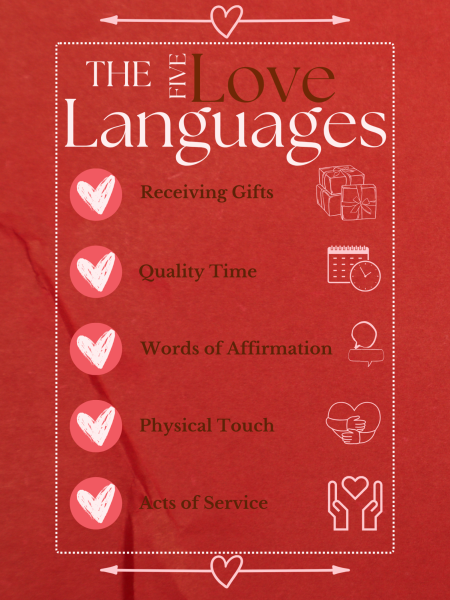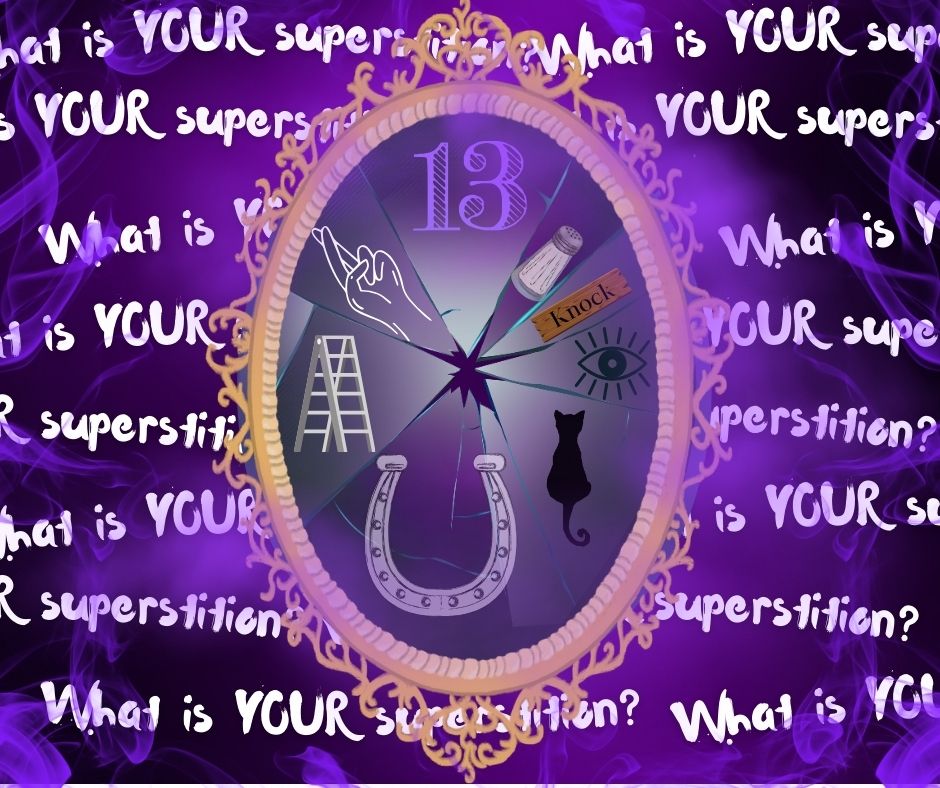To give or not to give, that is the question! As cliche as it sounds, there is nothing more rewarding than a smile when giving someone something to show appreciation and love.
Gift-giving is one of the five love languages, which originated about 30 years ago by Baptist pastor Gary Chapman. Chapman’s ideas are published in the various books he’s written about his theory, some of the most popular ones being: “The Five Love Languages: How to Express Heartfelt Messages to Your Mate,” in 1992 and “The Five Love Languages: The Secret to Love that Lasts,” also in 1992.

Julian Givi is an assistant professor at West Virginia University’s John Chambers College of Business and Economics. Givi’s research finds that givers (the people who give the gift) tend to give gifts based on their desires and motivations. They’re more focused on the reaction of the person rather than the practicality of a gift. They have trouble seeing things from other people’s perspectives, and in this case, it would be the receiver’s. They don’t see that something they find useful may not be the same as another.
The New York Times sent out a survey asking people to identify the best and worst gifts they had received. According to their findings, “When it comes to gift-giving, context is everything. While marketers, influencers, and innumerable holiday gift guides might suggest otherwise, whether a present is a home run or an epic fail depends less on cost, design, style, presentation, or practicality and more on the giver’s ability to listen, observe, and empathize — and perhaps do a little sleuthing.”
Therefore, it’s important to reflect on gifts further and take note of a person’s interests and hobbies. If a person is severely unathletic, it wouldn’t mean much if they were to receive a football as a gift.
Gift-giving not only makes the receiver happy, it also makes the giver happy as well. Michael Norton, professor at Harvard Business School, conducted a study in which they gathered 632 Americans and questioned them about their income, and spending, and then asked them to rate their happiness. The results concluded that “regardless of income level, those people who spent money on others reported greater happiness, while those who spent more on themselves did not.”
On the contrary, in an article by Time magazine, author Rabbi David Wolpe believes that givers tend to be in control when giving. When they give a gift to someone, the receiver may feel indebted to them: feeling that they must give something in return to satisfy them. Wolpe believes that oftentimes, gifts are given with many unspoken conditions, “Often they are conditional gifts, with memory strings attached—’ Remember when I gave you that wonderful present? Surely you would not oppose me now?”
Like many arguments, this may be true in some cases, but not all. Giving is a beautiful thing. It should be to show one’s love and appreciation towards another. Most people give out of the kindness of their heart, not to gain something in their favor. That shouldn’t be the case at all.
Sometimes givers don’t want to feel needy or vulnerable when accepting gifts, therefore they feel like they must be the ones to give instead of receive. They might feel embarrassed or ashamed when accepting a gift. Although this is perfectly normal, it shouldn’t be. Givers don’t need to be ashamed when receiving a gift. What’s so wrong with receiving one every once in a while?
Giving is a form of love, and it’s a beautiful thing, along with receiving. It shouldn’t be seen as something to be embarrassed about. People give, not because they have to, but because they want to, and that’s all there should be to it: no strings attached and no unspoken conditions.





















![Held up by a group of cheerleaders, flyer sophomore Leyu Yonas poses as part of a stunt, also supported by flyer junior Shayne Mitchell behind her. (Left) Prior to the pink out football game on Oct. 13, the athletes practiced in the aux gym from 5 p.m. to 6:30 p.m. (Right) On Oct. 19, the cheerleaders competed in their District Championships at Woodgrove High School. “We definitely put all our effort on the mat [at Districts], and it showed,” Mitchell said. Left: Photo by Nadia Shirr. Right: Photo by Steve Prakope via Victor O’Neill Studios.](https://theblazerrhs.com/wp-content/uploads/2023/11/feature-image-1200x823.png)
![Sophomore Xavier Smith (6), the Phoenix quarterback, runs the ball as his teammates help hold up the defense. “My [offensive] line collapses, so I just [have to run], and its a good way to get first downs because [Tuscarora’s] defense was really good,” Smith said.](https://theblazerrhs.com/wp-content/uploads/2023/11/IMG_5383-1200x897.jpg)



![As the referee throws the ball up for the tip-off, freshman Simone Diby leaps towards the ball to get it in Phoenix possession. Diby is a new member of the Phoenix girls basketball team, and despite it being a change, she finds it enjoyable. “It’s definitely a different experience if you’ve never played on a team, [but] I think it’s still fun.”](https://theblazerrhs.com/wp-content/uploads/2024/03/DSC_0057-1200x662.jpg)


![With the energy and effort the Bolts were bringing to the game, the Phoenix had to step up and match them to make it through their first game of the season. Many of the girls on the team, including freshman Nazly Rostom, have been playing soccer since their childhood and have grown a love for the sport as a result. “It was fun to see how we actually played in a [real] game,” Rostom said. “Even though the outcome was not what we were hoping for, I’m still happy we got to play together.”](https://theblazerrhs.com/wp-content/uploads/2024/04/DSC_0154-1200x800.jpg)






















